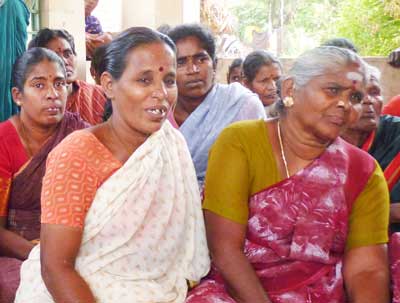 In Indian society, women are traditionally discriminated against and excluded from political and family related decisions. Despite the large amount of work women must do on a daily basis to support their families, their opinions are rarely acknowledged and their rights are limited.
In Indian society, women are traditionally discriminated against and excluded from political and family related decisions. Despite the large amount of work women must do on a daily basis to support their families, their opinions are rarely acknowledged and their rights are limited.
From the time they are born, young Indian girls are the victims of discrimination. According to a 2005 report from the Indian Ministry of Health and Family Welfare, the infant mortality rate among girls is 61% higher than that for boys. This gender inequality is also present in education; only 2/3 of girls between the ages of 6 and 17 are sent to school, compared to 3/4 of boys of the same age. Also, in the countryside, only 46% of women are literate, which is almost one-half the literary rate for men.
Instead of going to school, girls often find themselves forced to work in order to help their families, often from a very young age. Even more worrisome, 25% of women marry before the age of 15 and very often, they marry against their will. This has profound consequences, notably on women’s health and their precarious situation often prevents them from receiving proper health care. For many Indian women, poor treatment, violence and exploitation take place on daily basis.
However, in the last decades, the situation of women in India has greatly improved. An increasing number of Indian women are entering local and national politics and since 2007, the country has been under the rule of a woman, Pratibha Patil. She is the first woman to hold this position since the creation of the Indian Republic in 1950.
Indian society does indeed recognize many women’s rights, including the rights to political involvement, family allowance and set up a business. Nevertheless, in rural areas, poverty and a lack of information represent real barriers to women’s independence and empowerment. Programs aimed at advancing human rights, literacy and microfinance are therefore necessary in order to restore Indian women to the place they deserve and open doors to a better future.

